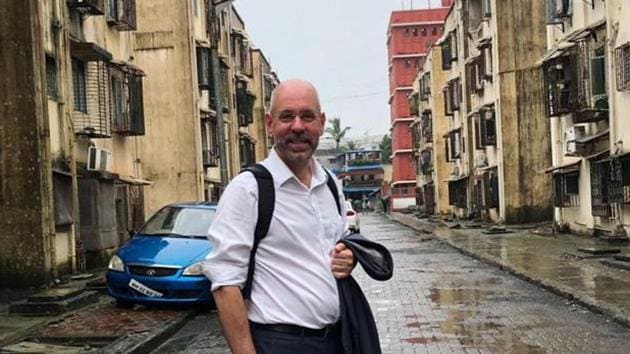‘Organising cities around cars, instead of people, wrong approach’: Urban expert
Brandes’s statement comes at a time when many city experts are opposing mega-road projects like the Rs. 14,000-crore coastal road connecting south Mumbai to the western suburbs.
The city has been seeing a range of infrastructural projects revolving around mobility — from expansive expressways to sea links and flyovers — in a bid to cater to Mumbai’s growing population of four-wheelers. However, Uwe S Brandes, urban design expert and associate professor at Georgetown University, US, believes focusing on vehicles is the wrong way to go about developing cities.

“The one thing urban planners around the world are learning is that we have falsely prioritised organising cities around cars and not people,” said Brandes. The academician is on a 10-day tour of India, starting with Mumbai.
Brandes’s statement comes at a time when many city experts are opposing mega-road projects like the Rs. 14,000-crore coastal road connecting south Mumbai to the western suburbs. “I get worried when I see big highway projects. There is a false confidence that cars are going to be a mobility solution, especially for large metropolitan areas,” he said, emphasising on integration of different modes of transport.
“Urban planners have to look more at integration of different systems like rails and buses,” he said. Brandes has over 20 years of experience in planning, design and construction of public infrastructure and urban landscapes. During his visit, he will be meeting officials from the Brihanmumbai Municipal Corporation (BMC), Mumbai Metropolitan Region Development Authority (MMRDA), City Industrial and Development Corporation (Cidco), think tanks and academic institutions.
The professor also emphasised making cities more pedestrian-friendly as a solution to global climate change. “The response to climate change is creating low-carbon cities, and the response to that is to create cities that are more walkable,” said Brandes. Some quick-fixes to achieve that, he suggested, are creating wide side-strips along roads; mixed land-use instead of different residential and commercial zones; and integrating institutions like schools and colleges within communities so they are at a walkable distance.
Brandes also highlighted the importance of an effective housing strategy to deal with congestion issues.
“In the 1920s, urban planners tried a new strategy of identifying areas as commercial and residential, and it has been a disaster since then. Cities have always been integrated and have a strong housing strategy,” he said.




